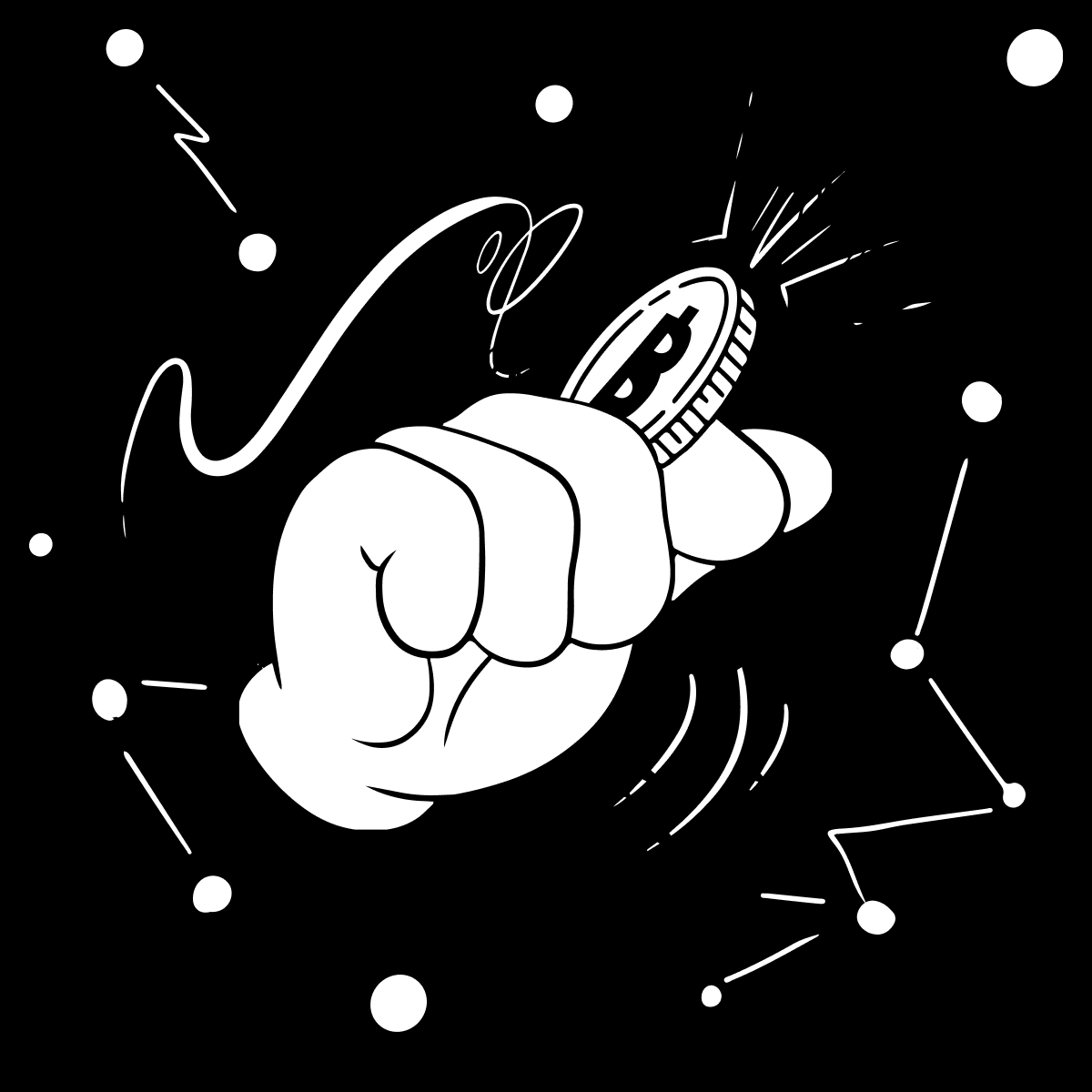Don't invest unless you're prepared to lose all the money you invest. This is a high-risk investment and you should not expect to be protected if something goes wrong. Take 2 mins to learn more.
What is Bitcoin?
The definitive peer-to-peer electronic cash system… plus so much more
Peer-to-peer electronic cash
Bitcoin was announced on October 31st, 2008 with a document, known as the Bitcoin Whitepaper, written by a pseudonymous creator by the name of Satoshi Nakamoto.

The document’s headline reads: “Bitcoin: A Peer-to-Peer Electronic Cash System”
… So what does that mean?
Physical cash (paper money and metal coins) is peer-to-peer cash. When you pay someone $10 of physical cash, that transaction is peer-to-peer – as in the money is handed from one person to another without anybody in between. It’s direct, instant, and final.
Electronic cash, on the other hand, isn’t peer-to-peer.
Electronic cash always involves one or more 3rd-parties (banks or financial institutions) to hold or transact. When you pay someone $10 with electronic cash, you need a bank to hold the cash in the first place and to actually make the payment go through. It’s not direct, and payments usually sit in “pending” status for hours or days.
People themselves can’t hold or transact their own cash electronically without a bank involved. Banks are like the mandatory middlemen for everything involving electronic cash… that is, until Bitcoin.
Bitcoin is a radical change for how money can work. It’s an electronic cash that can be held by you, and transacted peer-to-peer, without involving a bank.
A decentralized ledger
So how does Bitcoin work?
Let’s first compare it to the cash in your bank account. Your bank cash balance doesn’t actually exist as a bag of paper money in a vault with your name printed on it. Your cash balance is just digits on the bank’s own centralized, private ledger – the financial record of balances or transactions.
As an electronic cash, bitcoin (lowercase “b” for the asset) also exists as digits on a ledger, except that the Bitcoin ledger is different.
The Bitcoin ledger is decentralized – as in no central authority owns it or manages it. The Bitcoin ledger is a public record of all transactions, which is independently held and maintained by all participants in the network (called nodes). Anyone, anywhere can download their own copy of the ledger’s transaction history and actively check the transactions themselves.
A decentralized ledger is how you make transactions peer-to-peer.
But how do you get a network of independent participants to all agree on the correct, most up-to-date version of the ledger? How can bitcoin transactions be recorded on all copies of the ledger?
The answer is a process called “Bitcoin mining”. Essentially, mining is a way to award the rights to update the Bitcoin ledger in a fair, public, and transparent way.
Mining is kinda like a public lottery system, where any computer (called a miner) can participate in the lottery by doing computational work, known as “hashing”. The more computational power you deploy towards hashing, the more likely you’ll be to win the rights to update the ledger (and get paid a reward for doing so). The rewards for winning this lottery are paid in bitcoin, which is how bitcoin are issued.
When a miner wins the lottery, it broadcasts proof of its win to the network, along with a set of node-approved transaction updates for the ledger (known as a “block”). The nodes check that the lottery was legitimately won and the transactions are valid, then they update their copy of the ledger to include the new block of transactions. A piece of that new block forms the basis of the next round of the lottery, and the process repeats in a never-ending “chain” of blocks… hence “blockchain”.
This system of a decentralized ledger and mining is designed so that a global network of ledgers can all be on the same page, without having any central authority.

Rules, not rulers
The Bitcoin software, including its decentralized ledger, is open and free to download. When you download and run the Bitcoin software, your computer acts as a node in the Bitcoin network. Your node not only checks all the previous transactions, it actively participates in the enforcement of Bitcoin’s rules.
These rules, known as a “protocol” in computer terms, govern how bitcoin are mined, sent, received, and secured. A couple of the most notable rules are those governing Bitcoin's supply and the authorization of transactions:
- Bitcoin's supply: Bitcoin has a supply schedule – the steadily diminishing pace at which new bitcoin are issued as a reward for mining a block. This ever-diminishing supply issuance schedule leads to a total terminal supply of 21 million bitcoin.
- Authorization of transactions: Only the holder of the private keys can authorize the spending of the associated bitcoin. Private keys are used to digitally “sign” a transaction, kinda like how your signature is needed on a paper check to authorize a payment from your checking account. This means that holding your own private keys is how you hold your own bitcoin, as it’s the only way to spend your bitcoin.
All participants running the Bitcoin software (nodes) are actively enforcing its rules.
- Was the mining lottery legitimately won?
- Are all the transactions signed by the holder of private keys?
- Do all the transaction amounts comply with the supply schedule?
If any block or transaction doesn’t follow the rules, it’s rejected. The countless nodes, each independently running the Bitcoin software, are enforcing the rules 24/7/365, making Bitcoin work.
It’s a rules-based money system, where the supply of money or the authority to transact isn’t decided by central bank committees, bankers, or politicians.
It’s money you can hold, spend, send, save, and receive… electronically.
Bitcoin is peer-to-peer electronic cash.
© 2025 Strike
This financial promotion was approved by Englebert LTD (FRN 1001386) on Dec 23, 2024, 11:06:45 AM